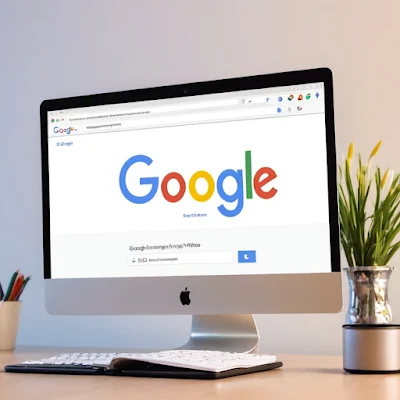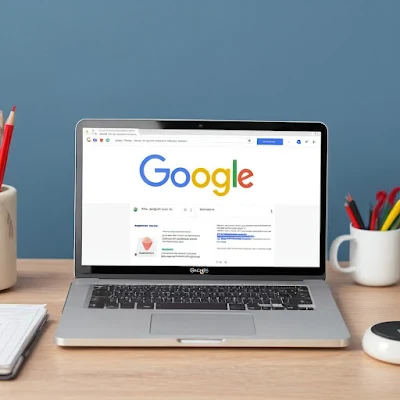 |
Why Google SEO Has Become a Necessity for Websites in 2024
Imagine building a magnificent website, filled with treasures and delights, only to have it languish unseen in the vast digital wilderness. This, unfortunately, is the fate of countless websites that fail to grasp the fundamental truth of the modern online landscape: Google Search Engine Optimization (SEO) Has Become A Necessity For Websites In 2024.
Think of Google as the bustling town square in this digital frontier. People seeking answers, solutions, and products come here first, armed with their questions and ready to spend. But with countless websites vying for attention, simply having a presence isn't enough. You need to speak the language of Google, understand its ranking algorithms, and optimize your website to be seen, heard, and chosen.
Why is Google SEO so crucial in 2024? Here are the compelling reasons why it's not just a fad, but a survival tactic for websites:
1. Organic Traffic: The Gift That Keeps on Giving
Paid advertising might bring visitors, but it's a fleeting fling. Google SEO for websites in 2024 unlocks the magic of organic traffic: a steady stream of potential customers who actively search for what you offer. It's like planting seeds that blossom into loyal visitors, nurtured by the power of search engines. This free and sustainable traffic fuels growth reduces reliance on paid ads and ultimately boosts your bottom line.
2. Target the Right Audience: Cast Your Net Wisely
Imagine casting a fishing net so precisely, it only catches the exact type of fish you desire. Google SEO for websites in 2024 empowers you to do just that. By carefully researching and utilizing relevant keywords, you attract customers who are genuinely interested in your products or services. No more spraying marketing efforts across the vast digital ocean; SEO allows you to target the specific audience most likely to convert, maximizing your return on investment and ensuring your efforts hit the bullseye every time.
3. Build Trust and Credibility: Become the Go-to Guru
In the competitive online world, trust is the golden currency. Google SEO for websites in 2024 helps you build that trust by establishing your website as a credible source of information and expertise. By creating high-quality content that addresses your target audience's needs and questions, you position yourself as a thought leader in your niche. This organic authority translates to increased trust and brand loyalty, ultimately leading to more sales and repeat customers.
4. Visibility Matters: Shine Brighter Than Your Competitors
Imagine your brand name lighting up the digital sky, visible to all who search for relevant terms. Google SEO for websites in 2024 makes that dream a reality. By ranking higher in search results, your brand gains greater visibility, putting you ahead of competitors who might have larger marketing budgets. This increased visibility translates to brand awareness, ensuring potential customers recognize and remember you when they're ready to make a purchase.
5. Measurable Results: Adapt and Thrive
Unlike traditional marketing channels where results can be hazy, Google SEO for websites in 2024 offers clear and measurable outcomes. With tools like Google Analytics and Search Console, you can track website traffic, keyword rankings, and conversion rates, providing valuable insights into what's working and what needs improvement. This data-driven approach allows you to continuously refine your SEO strategy, ensuring you stay ahead of the curve and maximize your return on investment.
Google SEO isn't a magic spell, but it's close. It's a strategic and ongoing process that requires dedication, learning, and adaptation. But for websites in 2024, it's no longer an option – it's a necessity. By embracing the power of SEO, you gain the visibility, credibility, and organic traffic that fuel success in the ever-evolving digital landscape. So, step into the town square, optimize your website, and watch your audience discover the treasures you have to offer.
Bonus Tip: Stay ahead by exploring emerging SEO trends like voice search and artificial intelligence. By continuously learning and adapting your strategies, you'll ensure your website remains visible and relevant in the ever-evolving digital landscape.
Remember, Google Search engine optimization (SEO) has become a necessity for websites in 2024 is not just a technical exercise; it's about connecting with your audience, building trust, and offering genuine value. Embrace the human touch in your SEO efforts, and watch your website thrive in the exciting world of online visibility.
"Organic Traffic" is a broad term, so to give you the best response, I need a little more context. What specifically would you like to know about organic traffic? Here are some potential areas I can help you with:
Understanding Organic Traffic:
- What is organic traffic and how does it differ from other types of traffic (paid, direct, etc.)?
- What are the benefits of organic traffic for websites?
- How can you measure and track your organic traffic?
Generating Organic Traffic:
- What are the key strategies for optimizing your website for organic search?
- How can you use content marketing to attract organic traffic?
- What are some effective link-building strategies?
- How can you use social media to drive organic traffic?
Advanced Organic Traffic Optimization:
- What are the latest trends in organic search?
- How can you use technical SEO to improve your website's ranking?
- How can you use data analytics to optimize your organic traffic campaigns?
Additionally, I can provide you with resources on organic traffic, such as blog posts, articles, and case studies. Just let me know what you're interested in!
"Target the Right Audience" is a crucial piece of any marketing strategy, SEO included. To help you effectively reach your ideal customer, I need more information about your specific goals. Here are some questions that will help me provide relevant and actionable advice:
1. What is your business or product? Briefly describe what you offer and who you want to reach.
2. What are your current marketing efforts? Are you already targeting a specific audience? What channels are you using?
3. What are your goals for targeting the right audience? Do you want to increase website traffic, brand awareness, conversions, or something else?
4. Do you have any existing demographic information about your target audience? Age, gender, location, interests, etc.
5. What are your biggest challenges in targeting the right audience?
Once I have a better understanding of your unique situation, I can offer more specific and helpful advice on targeting the right audience. This could include:
- Developing buyer personas: Creating detailed profiles of your ideal customers based on their demographics, interests, needs, and pain points.
- Identifying relevant keywords: Research keywords that your target audience is likely to use when searching online.
- Creating targeted content: Crafting content that resonates with your target audience's interests and solves their problems.
- Utilizing social media advertising: Targeting your ideal audience on platforms like Facebook, Instagram, and Twitter.
- Building email lists: Capturing leads and nurturing them with targeted email campaigns.
Remember, targeting the right audience is an ongoing process. It's important to continuously analyze your results and adapt your strategies to ensure you're reaching the people who matter most.
I'm excited to help you achieve your marketing goals! Feel free to share more details about your business and target audience, and I'll provide you with personalized guidance.
Building Trust and Credibility: The Bedrock of SEO Success
In the digital age, where information overload reigns supreme, trust and credibility are more valuable than ever before. This is especially true for websites striving to thrive in the competitive world of SEO. Ranking high in search results is important, but without trust, those clicks won't translate into loyal customers or sustainable success.
So, how can you build trust and credibility for your website in 2024? Here are some key strategies:
1. Be Transparent and Authentic:
- Disclose affiliations and partnerships: Don't hide sponsored content or affiliate links. Be upfront and transparent about your relationships with other brands.
- Showcase your expertise: Share credentials, awards, and case studies that demonstrate your knowledge and experience in your field.
- Own your mistakes: Address negative feedback promptly and professionally. Show your commitment to continuous improvement.
2. Create High-Quality Content:
- Focus on value, not just keywords: Create informative, engaging, and well-researched content that genuinely helps your audience.
- Offer solutions, not just sales pitches: Educate and empower your readers before pushing for conversions.
- Cite your sources: Demonstrate the accuracy and reliability of your information.
- Maintain a consistent voice and style: Build a recognizable and trustworthy brand identity.
3. Engage with Your Audience:
- Respond to comments and questions: Show that you care about your audience and their feedback.
- Participate in relevant online communities: Share your expertise and build relationships with potential customers.
- Run interactive polls and surveys: Gather feedback and demonstrate your interest in understanding your audience's needs.
4. Prioritize User Experience:
- Make your website easy to navigate and use: Ensure it's mobile-friendly and free of technical glitches.
- Offer reliable customer service: Provide multiple channels for support and respond promptly to inquiries.
- Protect user data: Implement robust security measures and clearly communicate your privacy policy.
5. Be Consistent and Patient:
Building trust takes time and effort. Don't expect overnight results. Stay consistent with your content creation, engagement, and transparency efforts. Over time, you'll cultivate a loyal audience and a reputation for reliability expertise.
Remember, building trust and credibility is not just about SEO; it's about building genuine relationships with your audience. By following these strategies and focusing on authenticity, you can establish your website as a trusted source of information and a valuable resource for your target audience, ultimately leading to sustainable success in the ever-evolving digital landscape.
Bonus Tip: Leverage the power of storytelling. Share personal anecdotes, customer testimonials, and case studies to connect with your audience on a deeper level and build trust through emotional resonance.
I hope this helps





